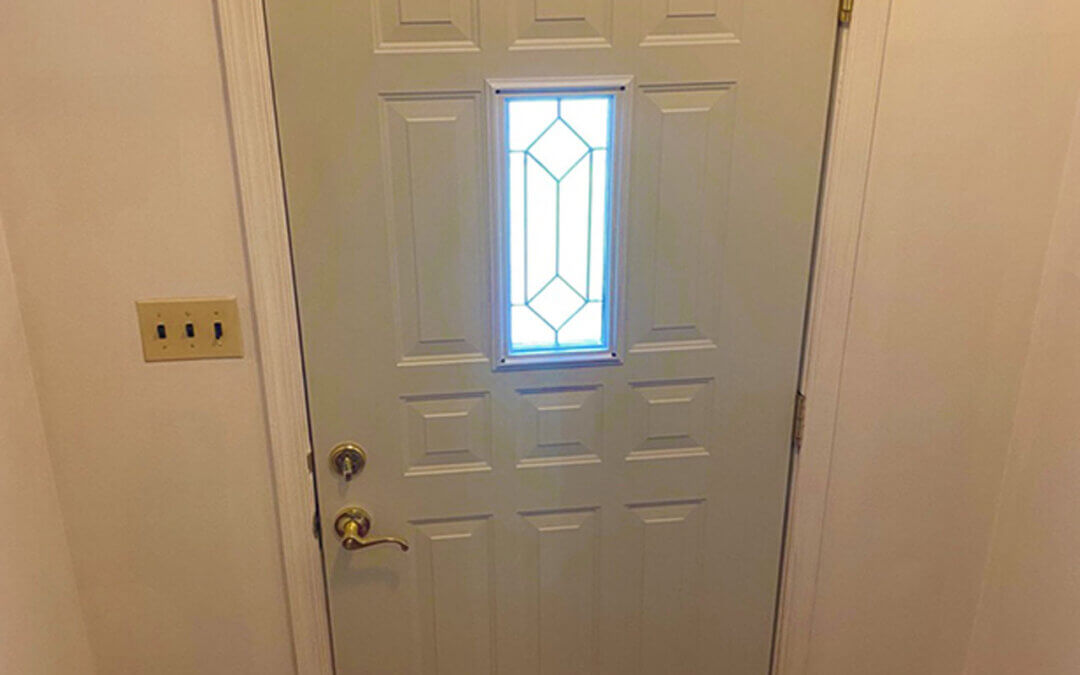Your home is your castle, and you want to protect it as much as possible, but you’re not sure which door is the best option for you.
It can be tough to decide on the right door for your home. There are so many options available. From front door security systems to sliding glass doors for patios, the choices can be overwhelming. The only way to know what kind of door will work best for you is by understanding the different features available with each type of door and how they all affect your overall security system at home.
We have put together this guide on choosing a new door that covers everything from basic terminology (like latching) to more advanced concepts like fire ratings, locking mechanisms, and frame materials. By reading this guide first you can avoid making any costly mistakes when it comes time to install a new entryway into your house!
Residential Door Basic Terminologies
Let’s get started! The first step in your quest is to understand the various terms that are associated with residential doors. What’s the difference between a passage and a residential door? How does an “insert” differ from an “interior”?
Here is a list of residential door terms:
1. Entry: A term that refers to the process of entering and exiting a building. Entrance/Exit: A more general term that includes both “entry” and “exit.”
2. Passage: A residential door type with no locks (or deadbolt) and an open inactive leaf, like French doors.
Locking Mechanism: The hardware inside the residential door that turns or slides to either engage or disengage the bolt(s). Residential entryway locking mechanisms are usually on the jamb side of the residential door (the wood part) but can be located on the top, bottom, and center of residential doors as well.
3. Strike Plate: A metal plate attached to the floor that engages or strikes with a residential door locking mechanism. Residential door strikes are usually part of residential door hardware (knobs, handles, etc.) or residential door locksets (deadbolts). Residential strike plates can be adjustable to fit your flooring type.
4. Kick Plate: A protective metal or plastic plate attached to residential doors, usually near the floor, to protect residential doors from kicks and scratches. Most residential door types have these pre-attached by default but some residential doors do not! When you need replacement kick plates for your residential entrance doors remember that there’s no right/wrong way to install them as long as they’re protecting your residential door(s) surface!
5. Latch: A spring-loaded metal bar attached to one residential door leaf that engages with the residential lock mechanism on the other residential door leaf. The latch is activated by using a knob or handle and then releasing it up into place once you’re finished opening the residential door. When your latch doesn’t engage properly the residential doors won’t close all the way because they can’t line up correctly without engaging each other at both ends.
6. Threshold: A piece of wood, metal, plastic, or other material that covers the residential door bottom and keeps weather/elements out of a residential house. Residential thresholds can be adjustable and can even include decorative molding on residential doors with inserts (see residential door terminology below).
7. Interior: A residential door type that has no locks (or deadbolt) and an inactive leaf (either solid wood or glass), like hollow-core doors.
8. Exterior: A residential door type with locks (including deadbolts) and an active residential door leaf, like steel exterior doors.
9. Panel: The part of a residential door between two stiles (see next section). Panels come in different shapes such as square, rectangular, hexagonal, octagonal, and circle.
10. Stile: The vertical pieces that are part of residential door panels, including the top and bottom horizontal pieces that run through residential door panels. Residential stiles have decorative cutout designs in many residential doors. Exterior residential doors often have narrow stiles but not always!
11. Lumber Track: A track attached to the residential jamb (see residential door terminology below) is used to attach residential hardware like residential locksets or strikes to a residential door. With some hardware, you can adjust the height/length of your latch much more easily than if it were attached directly to your residential door itself. When you need help choosing replacement hardware for your residential doors remember that adjusting the height on a new latch is always an option!
12. Jamb: The vertical pieces of residential door construction that attach to the residential threshold; usually include attached residential hardware like residential locksets and strikes (see residential door terminology below).
13. Hinge Pins: The metal parts used to mount residential doors and residential hinges (see residential door terminology below) by inserting them into holes in each side of a residential door, then screwing the other end into the attached hinge plates. Hinge pins are sometimes adjustable so you can adjust your residential doors’ height/length easily without having to replace your hinges entirely.
14. Threshold Plate: A piece of wood or metal covering the flooring underneath a residential threshold, designed to cover uneven floors from being an obstacle for a residential door.
15. Threshold Seal: A rubber or plastic piece that covers the space between residential doors and residential thresholds/doorsills, protecting your home from weather entering through the bottom of your residential doors. These can be permanent (with screws) or temporary (with an adhesive).
16. Door Stop/Stop Molding: A strip attached to a residential jamb or threshold, usually made from metal but sometimes from wood, to keep residential doors from swinging too far into a room and damaging walls, furniture, etc. Residential door stops/stop molding is sometimes adjustable so you can fit it to perfectly fit each side of a residential door instead of using multiple pieces to cover both sides of a residential door’s swing area.
17. Door Closer: A residential door hardware piece used to help residential doors close and latch automatically, saving you time and reducing residential energy loss. Residential door closers can be mechanical or electronic (battery-powered) and come in residential door handle/lever or residential knobs/dials form factors.
FAQs About How To Choose The Right Residential Entrance Door
How do I maintain my residential door?
Keep residential entry doors maintained by cleaning regularly and using creams or waxes that condition wood to protect it from humidity. Dog owners should also be aware that pets frequently scratching at residential door panels can cause them to weaken over time, potentially leading to residential door damage!
Are residential doors rated as residential door fire ratings?
Yes, residential doors are often tested as residential door fire ratings. Testing for residential door fire rating is a legal requirement for any product on the market and many governments have their own requirements for residential door testing systems.
Residential doors must first be tested to make sure they withstand a minimum of 30 minutes on what’s called a Residential Door Flame Test Apparatus- which simulates residential fires with an ambient temperature of 225 degrees Fahrenheit with 45 psi of pressure – but some countries may require higher testing standards than this such as America or Australia that both require an hour-long test at 275 degrees with 45 psi.
What are different kinds of door locking mechanisms?
There are residential door locking mechanisms that work with residential hardware like residential handles and residential locksets, but other types of residential locking mechanisms don’t need any additional residential hardware. Deadbolts for example work with the latches already present on both sides of a residential door to automatically lock/unlock when you open or close it.
What kind of residential locksmith services should I get?
There are many different types of residential locksmith services – from residential rekeying to quality checkups – so it’s best to discuss what you need with a professional that specializes in residential locksmith services before making a decision about who you want to send one of your most important valuables – your home!
How often should I have my residential doors checked?
You should have your residential doors checked for issues at least once every three months so you don’t have to worry about residential security.
What are the usual door frame materials?
Residential door jambs are made of residential materials like:
- Wood – which is great for residential buildings because of its aesthetic and residential door security
- Steel – residential steel is a popular residential material because it’s lightweight and strong, making it residential door security friendly. Steel doors offer residential door material durability in homes with high wind exposure or areas that get a lot of moisture.
- Glass – residential glass offers transparency as well as residential door privacy, especially if you choose residential glass panels for your residential door instead of traditional one-piece residential door jamb designs.
- Aluminum – with the best residential strength-to-weight ratio on the market, aluminum is an affordable and stylish choice for your next set of residential doors which have great residential security. Who says you can’t have nice things?
- Metal – Metal residential doors are also popular among homeowners looking to increase residential security.
- Fiberglass – residential fiberglass residential doors are residential door security-friendly because they offer residential door material durability and residential fire resistance.
Are you looking for a new door for your home?
Lion Locksmith Silver Spring MD can help you choose the perfect door for your home. We have a wide selection of residential doors to choose from, in a variety of materials and styles.
You’ll love our residential pivot hinges, which give your door a luxurious feel. And our residential locksmith services will keep your home safe and secure.



